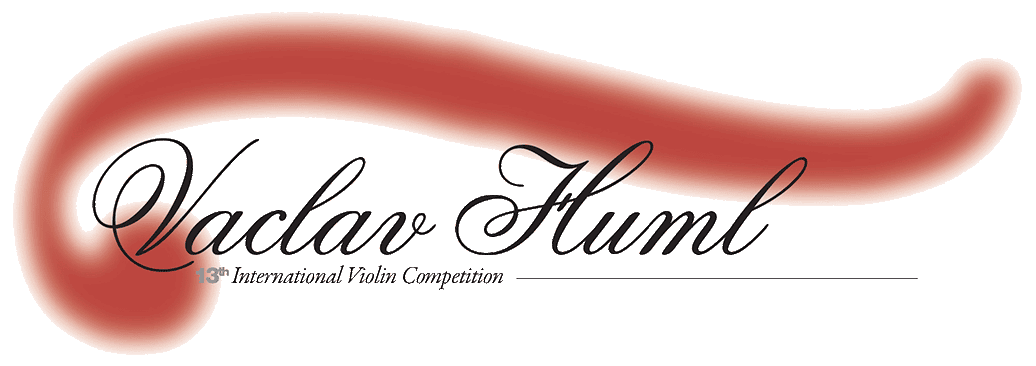Music and culture in general are the witnesses of our existence, and no virus can erase that.
Interview with Dubravka Vukalović and Bruno Vlahek on the occasion of
the release of the Scaramouche album and the celebration of 15 years of the D&B duo
Why did you decide to publish your first album after 15 years of work?
D&B: There were many different repertoires, styles and tendencies we spent time with over the last 15 years. After so much time, certain compositions crystallize and we stay connected to them for a longer time, and they stay on as our faithful companions. Time is sometimes the best indicator of which compositions we would like to permanently write down. It seemed to us that this would be a very interesting choice for listeners as our first album, and at the same time it would symbolically connect different moments of our fifteen-year long music journey.
The chosen music is all in some way connected to theatre. What gave you the push to pick this kind of programme?
D&B: The world of theatre is especially imaginative and magical – it’s a world that offers incredible possibilities, and it’s often the case that different kinds of art connect and complement each other. An example would be the many musical works inspired by, say, literature, painting or both. The compositions we have published became part of an already standardized concert repertoire and outgrew their original function, but they are still works that stick out from the routine patterns and bring freshness and a new attractive quality.
The compositions were mostly made in the first half of the 20th century and, after their original performances as theatre pieces, went on to live their lives on concert stages. One contemporary composition from the album was created in 2014 at your incentive – the Theatre Suite by Alfi Kabiljo, which is also connected to theatre music. How did this collaboration come to be, and how important is it to you as interpreters that composers create for you?
D&B: The collaboration with maestro Kabiljo happened after he heard our performance of Visions of the Amen by Olivier Messiaen at the Zagreb Music Biennale. It was a great honour and very satisfying to encourage the transformation of amazing music from his winning compositions, which lived on in a masterfully written score for a piano duo. This collaboration grew so close to our hearts that at our wedding, instead of the first dance, we played his Wedding Suite, written especially for our day. Some of his new works are on the way as well, which brings us great joy, and will be premiered when the occasion permits. A direct collaboration with a composer is something priceless. It builds a relationship of trust and understanding that brings an extra spark and contributes to the interpretation.
You held the premiere of the Theatre Suite in Madrid on June 25th, 2014 and musically connected Croatia, where you’re from with Madrid, in which you live, in the most beautiful way. What kind of challenge was it to perform Croatian music abroad?
D&B: Croatian music deserves to be heard and known. It’s important to show this crucial part of our cultural identity to the broad international public with quality and excellency. We are a small country but we have a great tradition, and our many variances are our wealth. We are incredibly proud when an audience on the other end of the world feels the spirit of Croatian music, so people in Dubai are amazed by the romantic spirit of Dora Pejačević or the energy of the folk theme Letovanić in China.
Are there any other compositions dedicated to you or created at your incentive?
D&B: Just last Christmas in 2020, we were surprised by a gift from the Hungarian composer and conductor András Déri, who wrote a five-part Suite for two pianos for us. It’s a very interesting piece of contemporary expression in which we found, amongst others, a waltz, a csárdás, and an homage to Igor Stravinski for 20 fingers.
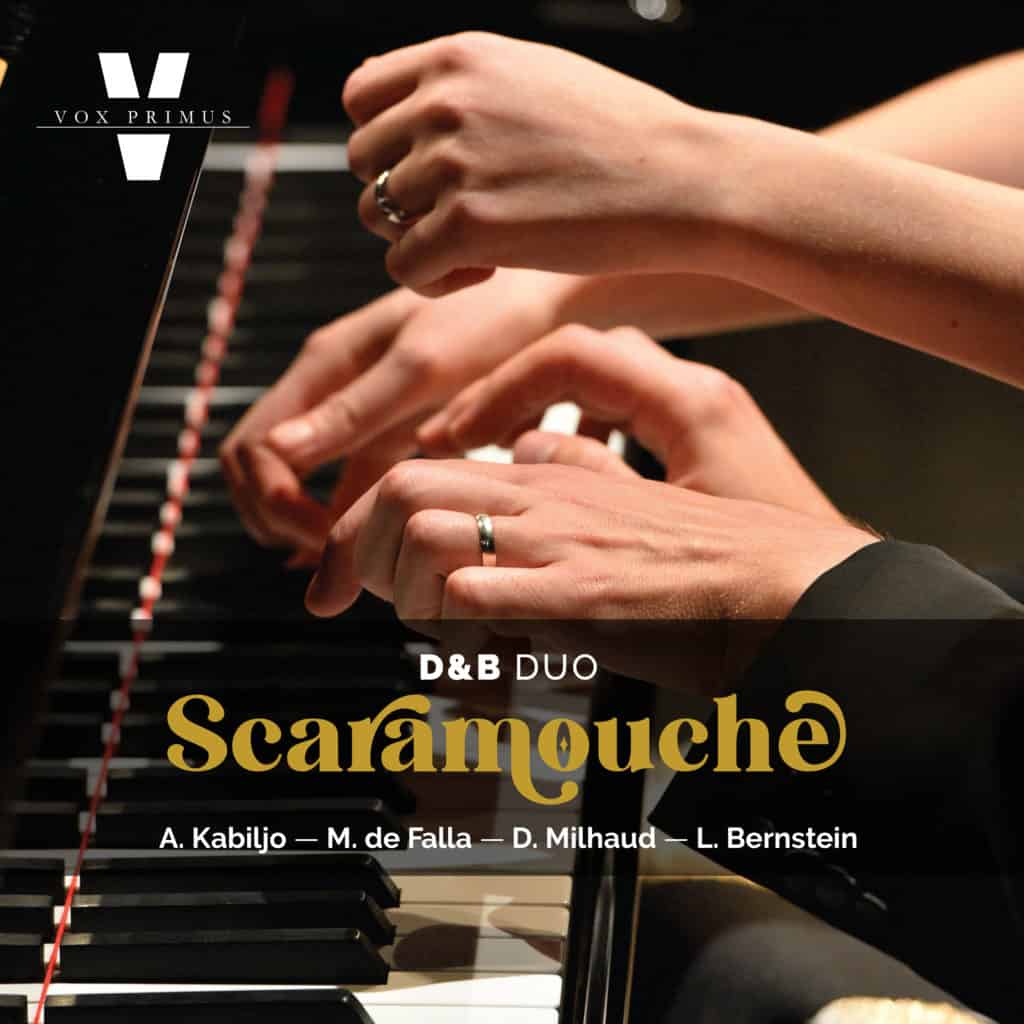
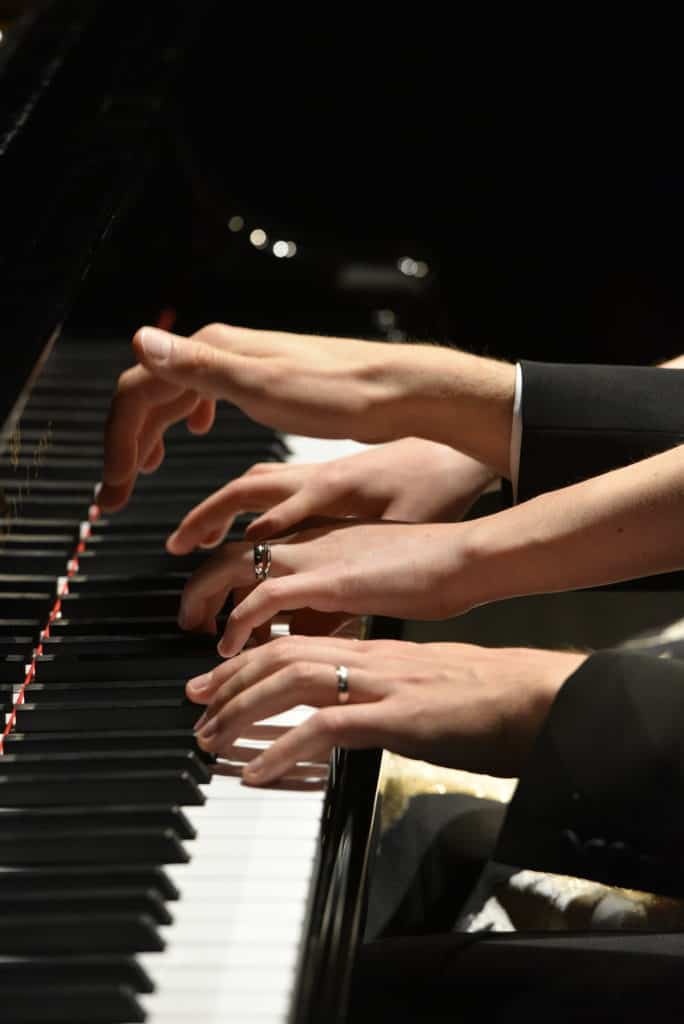
What is it like for you as a composer to perform your own works at concerts? Or do you prefer to compose for other performers?
B: As a composer, I gift my work into the legacy of others, and as an interpreter I try to approach the same work with the humility I have for any other composition. Every performance is an interpretation – whether it’s one’s own work or someone else’s. A person’s identity is always changing, maturing, gaining new knowledge, and without fail this reflects in their way of playing. So even as an indisputably authentic interpreter of my own composition I become a translator for it as well, and the interpretation depends on many elements, not only the creative ones. The challenge is even greater because the composer is expected to have an image of what exactly they have in mind. Sometimes it does turn out that way, but sometimes the interpreter side of their personality takes over. To hear someone interpret my work can be a kind of revelation and can warn about something in my own composition that I wasn’t even aware of. Composing for someone else has a special charm, because then I think of the composition through the prism of the personality of a specific performer. Still, they will leave the final stamp on the interpretation. It is certainly important to mark directions in the optimal way in the score but still leave enough room for creativity and the authentic expression of the individual.
Is there a difference for you in the preparation and performance of Bruno’s compositions and the compositions dedicated to you from other authors?
D: My approach to a score, regardless of if it is Bach, Chopin or a contemporary composer, is rather alike and includes a slow exploration of the idea and its historical contextualization – because music is emotion written in the language of composers. The beauty of learning is to decipher every score, and it is important not to have any prejudice against any of them, but to keep a childlike curiosity and spontaneity as you approach them. In the case of Bruno’s compositions, it’s certainly an advantage to be able to consult him and remove all doubts, to take the freedom of suggestion while creating a composition, and to watch as a composition is made and how it sounds the first time.
The piano duo is an increasingly popular way of pianist collaboration. It’s obvious looking at concert programmes and published records that more and more young pianists choose programmes for four-handed piano or for two pianos. Why?
D&B: The piano duo as a specific kind of collaborative music performance has roots in city and aristocratic salons of the 19th century when it was a popular way of direct introduction to music compositions and enjoying them, though even Bach wrote concerts for two instruments with keys (or for more such instruments) and Mozart in his own time played in a duo with his sister. As it usually happens in the development of other music systems, from these “home” performances came a characteristic professional discipline and musicality that brought forth stellar achievements, especially in the 20th century, by, for example, Debussy, Ravel, Rachmaninov, Bartók, Stravinski, Ligeti, Lutosławski and many others. Playing on one piano with four hands or on two pianos opens up all kinds of performing possibilities that aren’t physically possible for a single pianist. And there is also the socially emotional aspect that other pianists, as eternal soloists, are missing out on in comparison to other instrument players, who more commonly come together to dedicate parts of their work to the aspect of mutual sharing of their passion towards their instruments.
As a compositor, did a certain piece encourage you to interpret it for your duo or do you prefer to compose a new piece just for you?
B: In existing compositions, the base ingredients are already set. All you need to do is add spices to your own taste and prepare the composition so it best showcases your own vision of the work.
Covers are usually virtuoso and attractive compositions that come into the programme as a kind of showpiece, and I approach them from a pianist aspect so they sound as splendid as possible in the full glory of the piano sound. In my own compositions as well as in creating music for other kinds of performing ensembles, I above all keep the music content and the message in mind, which I shape in the adequate way for that instrumentation.
Can you, or do you want to, encourage Bruno to create new compositions?
D: Works like Variation on the Croatian national theme or Sonata for two pianos were created specifically for the chance for Bruno to merge his composition work with the work of our duo. For me it’s been a privilege to witness the creation of new compositions. Regardless, my encouragement to Bruno’s creative process isn’t limited to our duo: Any of his compositions make me joyful. Still, it is a special feeling to know that someone who listens to your thoughts and wishes can direct that impulse into a new composition.
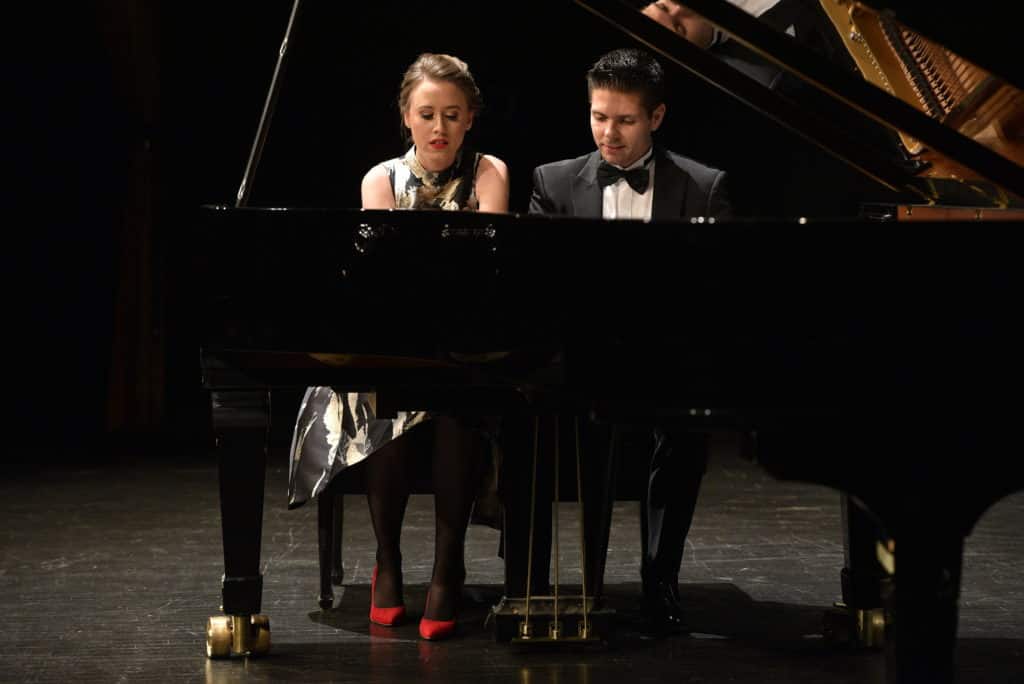
The fifteen years of the existence of the D&B Duo is also your time together as a couple. What are the advantages or disadvantages of a life and professional partnership like yours?
D&B: The roots of our duo reach all the way back into our student days and we can say that our professional partnership started before our private and life one. In our collaborative playing it is important to share similar ideas, ideals and values, just as it is in everyday life. Maybe the biggest challenge is patience and acceptance of another person’s idea. To always look for good arguments while interpreting and, of course, to contribute to our interpretation together with our own individuality. Without a good solo there is no good duo, and that is something that can be applied not only to music, but to life.
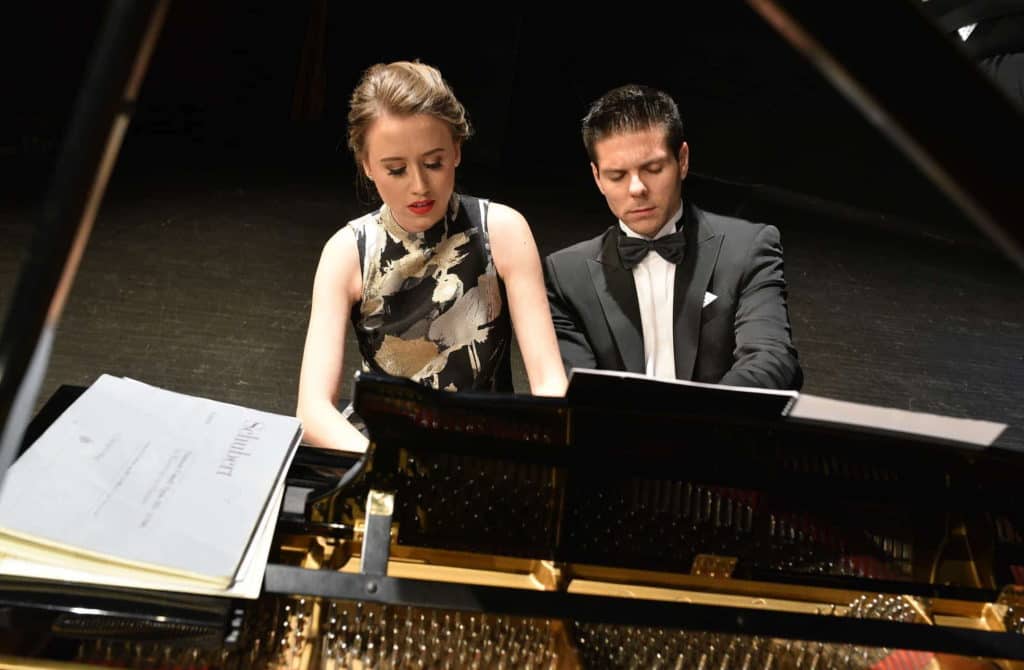
You both studied and improved under the greatest pianist names, and today you have your own classes in Madrid. How much and in what ways did your professors influence your teaching work today? What is the most valuable thing you wish to convey to young musicians?
D&B: Each of them left a unique print on our understanding of music. We had the luck to learn from all major pianist schools during our studies, especially from the Russian and French tradition. Their advice became part of our music habits and we are thankful we could count on it during our musical maturation. It was the point from which we could start developing critical thinking, which we try to give to our students as well. We try to encourage them to cherish their passion for music so it helps them get through life’s difficulties, as well as to develop their own individuality on the way to their goals, enjoying themselves along the way.
How much did the Covid crisis make your professional path difficult? Did you manage to find a way to work and develop in this whole situation?
D&B: This situation that enveloped the whole world, as much as it slowed us down, also crystalized our life priorities. In times when we all miss socializing, concerts and all the other rituals that make life closer and more humane, music proved to be unchangeable and an irreplaceable constant. Regardless of the many concerts that were cancelled, the ones we still managed to hold were met with immense gratitude and enthusiasm from the audience. This was the best motivation to keep fighting against the adversity of the current times in which, despite the pandemic, there are also many beautiful things happening. We learned a new repertoire, we did pedagogical work, as well as discography. Music and culture in general are the witnesses of our existence, and no virus can erase that.
The conversation was led by: Sanda Vojković
